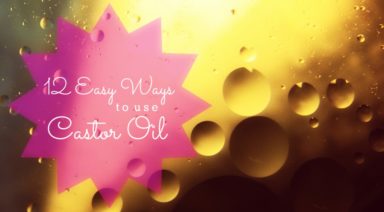Why It’s Recommended to Take Vitamins C, D3, & Magnesium Together?

When it comes to your health, Vitamin C, Vitamin D3, and Magnesium are remarkably nutritive allies. Vitamin C is a powerful antioxidant, supporting a variety of functions throughout your body. Vitamin D and Calcium seamlessly work together to protect your bones. Calcium builds and maintains your bones, while Vitamin D helps with calcium absorption. Calcium and Magnesium work together to provide a similar value. Magnesium keeps calcium out of the soft tissue and within the bones, where it’s needed most.
What is Vitamin C?
Let’s start with a deep dive into Vitamin C. Commonly known as ascorbic acid, Vitamin C is an organic compound comprised of carbon, hydrogen, and oxygen. While our bodies can not produce it, it’s a powerful antioxidant with many health benefits.
In its purest form, ascorbic acid is a synthetic, white solid derived from the sugar dextrose. It can be found naturally in a variety of fruits and vegetables and is known to be an immune-boosting and curative supplement. One of its primary functions is helping the body manufacture collagen, a protein found in every person’s connective tissues, cartilage, and tendons.
We’ve heard about the benefits of Vitamin C for a long time. Discovered by biochemist Albert Szent-Györgyi in the 1930s, this remarkable chemical enables the body to healthfully sustain itself and helps it efficiently use fats, carbohydrates, and proteins.
Centuries ago, when fresh vegetables were not always easy to find, sailors would experience fatigue, weakness, open sores, bleeding gums, loose teeth, and unusual hemorrhages beneath the skin. The condition was known as Scurvy, and in the 15th century, it ravaged sailors and low-income families, causing sickness, disability, and death. Szent-Györgyi’s won a Nobel Peace Prize for his discoveries regarding Vitamin C supplementation, which provided excellent value for the British Navy.
What Are Antioxidants?
Antioxidants are chemical compounds that inhibit oxidation, which is the chemical reaction that produces cell-damaging, free radicals. When free radicals accumulate, they produce oxidative stress in our bodies, which has been linked to a variety of chronic diseases.
Antioxidants like Vitamin C terminate these types of reactions, which reduces free radicals and keeps our systems in balance. When it comes to preventing disease and improving our immune systems, it’s all about antioxidants.
What Can Vitamin C Do for Me?
- Reduce free radicals and oxidative stress
- Reduce the emergence of chronic diseases
- Reduce high blood pressure (hypertension)
- Slow the progression of vision loss
- Lower the chances of heart disease
- Prevent gout
- Improve heart health
- Improve iron absorption
- Boost immunity
- Protect memory and thinking
- Reduce occurrences of dementia
- Reduce incidents of pneumonia
Contrary to popular belief, Vitamin C has not proven itself when it comes to curing a common cold or treating cancer. Additionally, when given a high dose (over 2000 milligrams), Vitamin C can cause severe diarrhea, kidney stones, and other issues. Smoking can significantly reduce the levels of Vitamin C in the body.
Foods rich in Vitamin C include Kakadu plums, blackcurrants, acerola cherries, chili peppers, rose hips, guavas, sweet yellow peppers, red and green peppers, thyme, parsley, mustard spinach, broccoli, green beans, cantaloupe, lemons, lychees, American persimmons, Brussels sprouts, cauliflower, kale, kiwis, orange juice, papaya, sweet potatoes, strawberries, and tomatoes.
What Is Vitamin D3?
Vitamin D is more than just one vitamin. Studies suggest that Vitamin D3 is more effective than D2, yet they are both critical compounds found in the lower layers of our skin. Their primary benefit is that they improve the absorption of calcium and immune function.
D3 and D2 production come through a chemical reaction that’s dependent on exposure to the sun, otherwise known as UVB radiation. This fat-soluble, lower-class steroid can increase our chances of absorbing calcium, Magnesium, and phosphorus, which are essential to human life.
D3 comes mostly from animals and can be found in food like oily fish, butter, and liver. D2 is generally sourced from plants, for example, mushrooms that are grown in UV light and several other fortified foods.
Because exposure to the sun can also increase our risks of skin cancer, the best way for us to benefit from this vitamin is by taking it as a supplement. Not technically vitamins, D3 and D2 are best described as hormones.
Here are the benefits of D3 and D2:
- Improves muscle strength, mass, and function
- Improves bone health
- Eradicates rickets (a disease that softens and weakens the bones)
- Improves the body’s absorption of calcium, essential for bones
- Reduces the chances of osteoporosis and osteomalacia
- Reduces the risk of early death in the elderly
- Reduces the risk of death from cancer
- Improves teeth health
- Reduces fatigue
- Reduces depression
- Reduces the severity of viral infections
- Decreases the risk of acute respiratory tract infections
- Reduces the exacerbation of asthma
- Reduces inflammatory bowel disease (IBD) in the forms of Crohn’s disease and ulcerative colitis
- With calcium, we can improve brain function
- Might reduce the risk of flu
- Might aid lung function
- Might reduce the side effects of chemotherapy
A Harvard study has shown that taking too much Vitamin D, in any form, can reduce its benefits. In fact, high Vitamin D levels can lead to a slew of health issues primarily due to elevated calcium levels in the blood (hypercalcemia). When it comes to receiving the benefits of Vitamin D3 and D2, less is often better.
Hispanic and African-American communities are less efficient at making enough Vitamin D because the melanin in their skin inhibits it. Some studies suggest 600 IU is sufficient for all adults and that taking more than 4,000 IU (100 micrograms) can induce toxicity and cause vomiting, weakness, and frequent urination.
Vitamin D is considered a fat-soluble vitamin because it dissolves in fat rather than water, allowing it to be stored in the body’s fatty tissues for later use. This makes food an excellent source of Vitamin D3, including fish oils, wild salmon, milk, butter, orange juice, eggs, cheddar cheese, and yogurt. When it comes to nutrients, always choose food over Vitamin D supplements.

Natural sources of vitamin D and Calcium.
What Does Magnesium Do for You?
Mg in the periodic table, Magnesium is the lightest structural metal and the eighth-most abundant element in the Universe. It has proven itself as one of the key elements essential to all cellular life.
Magnesium is required for the processes that involve DNA, RNA, and ATP. DNA produces the code for all of the activities of our cells. RNA converts that code into proteins to carry out cellular functions. ATP provides energy to drive living cells.
Because it’s never found free in nature, Magnesium had to be isolated and extracted to be useful. This first occurred in 1808, at the hands of Sir Humphry Davy, an English chemist.
Magnesium has been found in pyrotechnics, lightbulbs, airplanes, missiles, rockets, cameras, paint, Epsom salt, milk of magnesia, and horseshoes. It also fills 2.5% of the earth’s crust. The top producers of Magnesium in this century include China, Russia, Turkey, and Austria.
Why take Magnesium? A magnesium deficiency can actually lead to various health concerns, including muscle cramps, fatigue, irregular heartbeat, and weakened bones. When it comes to your well-being, Magnesium is one of seven essential minerals, along with calcium, phosphorus, sodium, potassium, chloride, and sulfur. It plays a vital role in supporting how your body’s enzymes function and support your health.
Here are the benefits of Magnesium:
- Help metabolize food (convert food to energy)
- Prevent problems with bones
- Help create and repair DNA and RNA
- Regulate your nervous system
- Fight depression
- Act as an anti-inflammatory
- Support your cardiovascular system
- Help your body absorb calcium
- Help activate Vitamin D in your kidneys
- Decrease your chance of developing type 2 diabetes (reduces Insulin resistance)
- Synthesize fatty acids and proteins
- Improve the transmission of nerve impulses
- Reduce premenstrual symptoms
- Lower your risk of arthritis and high blood pressure
- Reduce the risk of arrhythmia
- Help prevent migraine headaches
- Relieve anxiety
- Support the body’s glutathione levels (Glutathione is a power-player when it comes to your health)
Be aware that some medications interact with Magnesium, which can cause serious problems. Consult with a doctor or certified nutritionist before adding magnesium supplements to your diet. As with all naturally occurring chemicals, it’s always best to source your Magnesium from whole food. The best time to take Magnesium is one or two hours before you go to bed.
The foods that contain high Magnesium levels include dark chocolate, pumpkin seeds, Brazil nuts, sunflower seeds, almonds, sesame seeds, cashews, avocados, fatty fish (like wild salmon, mackerel, and halibut), shrimp, kale, collard greens, turnip greens, spinach, soy milk, tofu, edamame, oatmeal, broccoli, peanut butter, black-eyed peas, black beans, kidney beans, chickpeas, peas, lentils, bananas, and brown rice.
Summary
While supplements are helpful and healing, do your best to get most of your nutrients from whole food. Given that there are now over 2,000 legal, untested chemicals in our packaged foods, it’s never been more important to feed and nurture ourselves through the most wholesome foods and supplements.
Besides outlining how you can improve your health and wellness, the biggest takeaway in this article is that dark chocolate contains oodles of Magnesium and antioxidants. Be happy, and yes, eat more dark chocolate.
Disclaimer: Gaia is not a licensed healthcare provider and does not offer medical advice or services. Any information related to multivitamins and nutrition provided by Gaia should be discussed with a healthcare professional before making dietary supplement changes.
Health Benefits of Castor Oil Packs: What You Need to Know

Castor oil packs have been used for centuries as a natural remedy to support overall wellness. Countless people use them for pain relief, skin health, and even to support liver function. Simply soaking a cloth in castor oil and applying it to the skin, these packs are believed to help with detoxification, reduce inflammation, and promote better digestion. While castor oil packs are a relatively simple and gentle healing tool, understanding their proper use is essential to maximizing benefits and minimizing potential side effects.
What is Castor Oil?
Extracted from the seeds of the Ricinus communis plant, castor oil has been valued for centuries across various cultures for its medicinal and industrial applications. This castor plant, native to Africa, India, and the Mediterranean region, has become one of the world’s oldest cultivated crops. The oil pulled from these seeds is rich in ricinoleic acid, a monounsaturated fatty acid believed to be responsible for many of its therapeutic properties.
Historically, castor oil’s use dates back to ancient Egypt, where it was documented in medical papyri around 1550 BCE, primarily as a laxative to relieve constipation. Over time, its applications have diversified:
- Laxative Properties: Castor oil is approved by the Food and Drug Administration (FDA) as a stimulant laxative. It works by stimulating nerves in the gastrointestinal tract and increasing bowel movements, which helps relieve occasional constipation.
- Skin Care: It serves as a moisturizer to treat or prevent dry, rough, scaly, or itchy skin and minor skin irritations.
- Wound Healing: The oil contains antibacterial and antimicrobial properties that may aid in speeding up wound healing, especially when combined with other substances.
- Anti-Inflammatory Properties: Castor oil may help reduce inflammation and possibly improve blood flow of the lymphatic system.
- Hair Care: It’s commonly used in hair products to condition and moisturize hair, promoting hair growth and overall hair health.





































